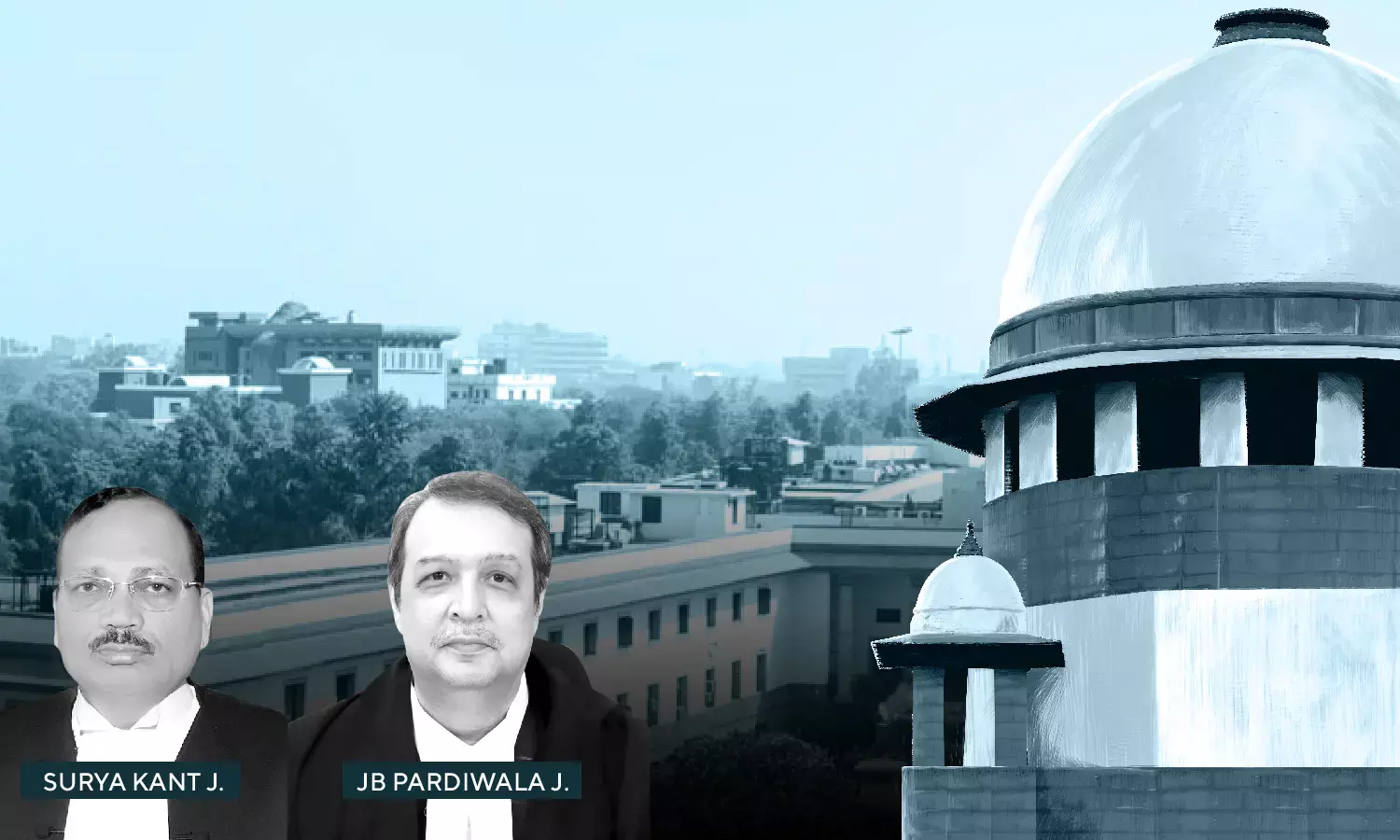Section 138 NI Act: For Quashing Complaint U/s. 482 CrPC, Director Or Partner Of Firm Must Produce Sterling Inconvertible Material- SC

The Supreme Court in a cheque dishonour case has held that for quashing a complaint under Section 482 CrPC related to Section 138 of the Negotiable Instruments Act, the director or the partner of a firm must produce sterling inconvertible material before the High Court.
The Bench of Justice Surya Kant and Justice JB Pardiwala also observed with respect to Section 141 (1) of the NI Act that if the accused is able to prove to the satisfaction of the Court that the offence was committed without his/her knowledge or he /she exercised due diligence to prevent the commission of the offence, he/she will not be liable of punishment.
The Court further also observed that High Court should not interfere under Section 482 CrPC at the instance of the accused unless it comes across some unimpeachable and incontrovertible evidence to indicate that the Director/partner of a firm could not have been concerned with the issuance of cheques.
In this case, the Appellant was engaged in the business of milk and milk products. The Respondent was a partnership firm and used to purchase milk and milk products from the Appellant /complainant on a credit basis. The Appellant had to recover Rs. 10,71,434.60/- from the Respondent. The firm issued a cheque which came to be dishonoured as there was no sufficient balance in the account maintained by the firm.
Upon serving the notice to the firm and its two partners by the Appellant, the Respondents did not reply to the said notice. Thereafter, the Appellant filed a complaint before the Judicial Magistrate Fast Track Court for the offences under Sections 138 read with 141 of the NI Act.
The Respondent preferred an application under Section 482 CrPC before the Madras High Court and prayed the criminal proceedings instituted against her may be quashed as she had no liability under the law.
She argued before the Court that much before the cheque came to be issued, the firm had dissolved.
The High Court quashed the complaint against her under Section 482 CrPC.
The High Court took the view that the complaint can be prosecuted against the respondent herein only if the allegations made in the complaint fulfil the requirements of Section 141 of the NI Act. The High Court took the view that merely by reciting the words used under Section 141 of the NI Act in the complaint no vicarious liability can be fastened on the partner of the firm.
Aggrieved, the Appellant approached the Supreme Court.
Counsel E.R. Kumar appeared for the Appellant while Counsel Hari Priya Padmanabhan appeared for the Respondent (accused) before the Apex Court.
The issue dealt with by the Court was –
- Whether the High Court committed any error in passing the impugned order.
The Court observed the following –
"Vicarious liability can be fastened on those who are incharge of and responsible to the company or firm for the conduct of its business. For the purpose of Section 141, the firm comes within the ambit of a company;
It is not necessary to reproduce the language of Section 141 verbatim in the complaint since the complaint is required to be read as a whole;
If the substance of the allegations made in the complaint fulfil the requirements of Section 141, the complaint has to proceed in regards the law.
In construing a complaint a hypertechnical approach should not be adopted so as to quash the same.
The laudable object of preventing bouncing of cheques and sustaining the credibility of commercial transactions resulting in the enactment of Sections 138 and 141 respectively should be kept in mind by the Court concerned.
These provisions create a statutory presumption of dishonesty exposing a person to criminal liability if payment is not made within the statutory period even after the issue of notice.
The power of quashing should be exercised very sparingly and where, read as a whole, the factual foundation for the offence has been laid in the complaint, it should not be quashed.
The Court concerned would owe a duty to discharge the accused if taking everything stated in the complaint is correct and construing the allegations made therein liberally in favour of the complainant, the ingredients of the offence are altogether lacking."
The Court noted that there were specific averments that the cheque was issued with the consent of the Respondent and within her knowledge. Thus, this was sufficient to put the Respondent on trial for the alleged offence.
"To make good her case, the respondent herein is expected to lead unimpeachable and incontrovertible evidence. Nothing of the sort was adduced by the respondent before the High Court to get the proceedings quashed. The High Court had practically no legal basis to say that the averments made in the complaint are not sufficient to fasten the vicarious liability upon the respondent by virtue of Section 141 of the NI Act", the Bench observed.
Accordingly, the Court allowed the appeal and set aside the impugned order of the High Court.
Cause Title – S.P. Mani and Mohan Dairy v. Dr Snehalatha Elangovan

